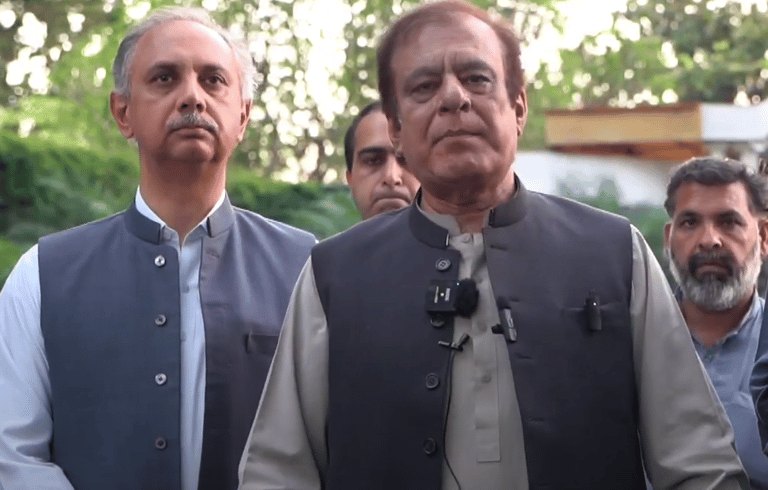ATC Sentences Omar Ayub, Shibli Faraz to 10 Years Prison
Pakistan’s ATC sentences Omar Ayub, Shibli Faraz & 106 PTI leaders to 10 years over May 9 riots. PTI plans protests; legal appeals to follow.
Raja Awais Ali
7/31/20252 min read


ATC Faisalabad Sentences Omar Ayub, Shibli Faraz, and 106 Others to 10 Years in Prison Over May 9 Riots
On the evening of July 31, 2025, a significant verdict from the Anti-Terrorism Court (ATC) in Faisalabad shook Pakistan’s political landscape. The court sentenced Omar Ayub Khan, former federal minister and a prominent PTI figure, along with Shibli Faraz, opposition leader in the Senate, and 106 other PTI members, to 10 years in prison each over their involvement in the May 9, 2023 riots. The court ruled that these individuals were guilty of orchestrating and participating in violent protests that led to damage to public and military installations.
Out of 185 individuals on trial, the ATC found 108 guilty, including key political figures, while the rest were acquitted due to a lack of evidence. The May 9 events involved widespread unrest across multiple cities in Pakistan, with clashes, vandalism, and attacks on military buildings following the arrest of former Prime Minister Imran Khan at the time.
Reacting strongly to the decision, PTI Chairman Barrister Gohar Ali Khan labeled the ruling as “a political vendetta masquerading as justice.” In a televised statement, he announced that the party would challenge the verdict in higher courts and also called for a nationwide protest on August 5, declaring it a "black day for democracy."
Interestingly, while senior figures like Omar Ayub and Shibli Faraz were handed harsh punishments, others such as Fawad Chaudhry, Zain Qureshi, and Khayal Ahmad Kastro were completely acquitted by the court. The lightest sentence went to Junaid Afzal Sahi, who received three years in prison. This selective judgment has sparked debates about fairness and the political implications of the judiciary's decisions.
Despite the gravity of the verdict, the federal government has not issued any official statement yet. Legal experts are divided—some consider the ruling a much-needed measure to uphold the rule of law, while others view it as politically motivated suppression targeting PTI's leadership ahead of possible elections or power transitions.
Meanwhile, Imran Khan, still entangled in multiple legal battles, has reportedly asked the party to intensify its political and legal resistance, including boycotting parliamentary sessions and increasing pressure through public rallies.
This verdict has added to the already tense political atmosphere in Pakistan. PTI’s internal sources say that the party will not remain silent and is now planning to escalate protests both inside and outside the parliament. The narrative of political victimization is gaining momentum, and with more legal battles expected, Pakistan’s political future remains uncertain.